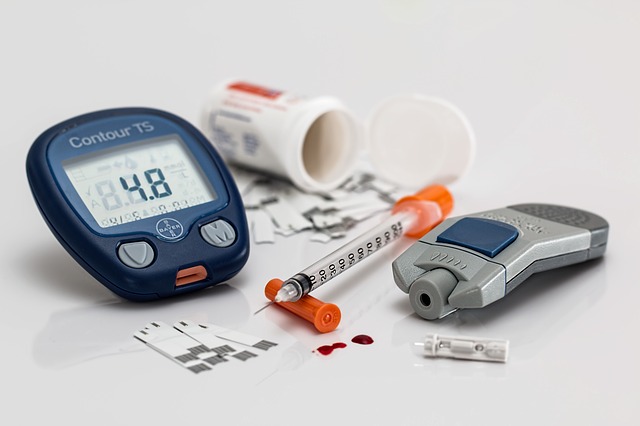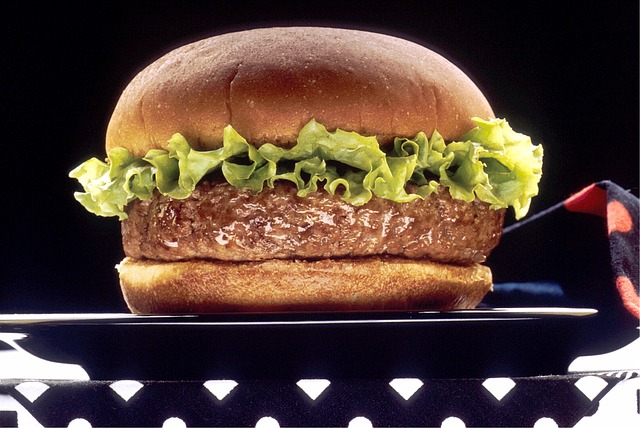- Home
- diet and dementia
Blog Categories
Recent Posts
7 Ways Your Diet and Lifestyle Impact Your Risk for Alzheimer's and Dementia
Posted by on
It turns out that some of the same issues that cause diabetes, heart attacks, and other heart issues also cause Alzheimer’s and dementia. Unfortunately, there aren't cures for Alzheimer's or dementia yet, but what you eat may play a big part, jut as it does for heart disease. Very simply put, what’s good for your heart is good for your brain.
According to Cathy Kehoe, Dementia Care Specialist at the Jefferson County Department of Human Resources in Jefferson, Wisconsin, the number one question people ask her is, “What is the difference between Alzheimer’s and dementia?” She explained in our interview, “Over the year, these words have been used interchangeably, mainly because Alzheimer’s is the largest cause of progressive dementia diseases.
Dementia is a word used to describe symptoms that occur when the brain isn’t functioning properly. Typical dementia symptoms are memory loss, changes in judgment and personality, confusion about time and place, problems with speech and understanding speech, inability to organize, sequence, and navigate – to name a few.”
“People think about dementia as being Alzheimer’s, which is one form of progressively irreversible brain disease. There are several other types that are also progressive such as Lewy Body, frontotemporal, and vascular dementia. The good news, however, is that many things like diet and exercise that can cause dementia symptoms are treatable and now, we are starting to realize, can be prevented.”
The MIND diet, a long term study by Rush Hospital in Chicago, has found that eating nuts, berries, vegetables, and seafood or fish like wild salmon, along with wine and salad and some whole grains, may be the proper diet for dementia patients. The key is to reduce the amount of bad foods you eat and increase the foods that are good for you. If that sounds familiar, there's a reason...
Too Much Sugar

Fructose is a natural sugar that is found in fruit, and is beneficial for you. It has antioxidants to help fight off diseases. Refined, however, it becomes the infamous high-fructose corn syrup, or refined cane sugar. Food companies add fructose in the form of cane sugar and high-fructose corn syrup to prepackaged snacks and foods like fruit drinks, sodas, juices, diet sodas, baby food, and sweet snacks. White sugar and processed sugar, like high-fructose corn syrup, just aren’t good for you. According to the U.S. Department of Agriculture, a majority of Americans consume about 47 pounds of cane sugar and 35 pounds of high-fructose corn syrup 1 every year.
A recent UCLA study shows that a diet that includes too much fructose on a daily basis can actually slow the brain; it impedes our ability to learn new information and tampers with our ability to remember information. Using two groups of lab rats, researchers gave both groups fructose in their drinking water. One group was given omega-3 fatty acids in their water. They recorded how long it took both groups to get out of the maze. The same rats were retested after 6 weeks and the researchers found that the rats with the omega-3 fatty acids navigated the maze faster than the other group.
This study determined that fructose was to blame for the impaired brain activity 2. According to Dr. Gomez-Pinilla, "Eating too much fructose could block insulin's ability to regulate how cells use and store sugar for the energy required for processing thoughts and emotions." Dr. Gomez-Pinilla says that DHA is crucial in protecting the brain from the harmful effects of fructose.
Although DHA is available as a supplement, walnuts, flaxseed and wild salmon provide natural sources of omega-3 fatty acids and DHA 3.
Too Much Junk Food or Fast Food

It may be alright to sneak a cheeseburger and French fries once in awhile, but a lifestyle of fast food or junk food isn’t just bad for you anymore. Picking up fast food every day for lunch or dinner every day won’t just cause you to gain weight, it will also affect your memory and your brain.
Too much fatty food overloads an individual’s insulin levels, shutting down the muscles and liver so they don’t respond to hormones well. And it turns out that the brain reacts the same way: too much insulin restricts our ability to think and create new memories. Research at Brown University using rats found that once insulin was blocked from the rats’ brains 4, they were confused and couldn’t find their way out of a maze. The brain had similar patterns of Alzheimer’s as well as high levels of amyloid plaque, a key component of the disease.
Eating Too Much Gluten

The following grains and starches, some obvious and others not as obvious, have gluten. In addition, there’s a long list of hidden, not so obvious foods and other items that contain gluten. New research indicates that gluten may not be good for any of us, not just people with celiac disease or gluten sensitivity.
- Wheat
- Wheat germ
- White flour
- Rye
- Barley
- Bulgur
- Couscous
- Farina
- Graham flour
- Kamut
- Matzo
- Semolina
- Spelt
- Triticale
Source: http://www.drperlmutter.com/eat/foods-that-contain-gluten/5
Though Leaky Gut and Irritable Bowel Syndrome may be due to gluten issues and other inflammatory reactions in the gut or intestine, new research shows that foggy thinking and acting ‘spacey’ that also show up with gluten are also related to dementia.
This explains the array of neurologic issues now correlated with gluten sensitivity in non-celiac patients, described by Dr. Anna Sapone and colleagues. Writing in the Journal of Neurology, Neurosurgery & Psychiatry , Dr. Marios Hadjivassilou stated, "That gluten sensitivity is regarded as principally a disease of the small bowel is a historical misconception. Gluten sensitivity can be primarily and at times exclusively a neurological disease." 6
Irregular Sleep or Sleep Apnea

“It’s important to get problems you may be having checked out so they can be addressed early,” said Kehoe. “Sleep apnea can be behind someone’s symptoms. Sleep is so very important because it’s the time when the brain does its housekeeping, flushes out toxins and processes and transforms information learned during your day into long term memory.”
Irregular sleep isn’t good either. Optimally, we need 7-8 hours of sleep at night. Anything less over a couple of weeks will result in sleep deprivation, which also affects cognition.
Sundowners Syndrome

Men and women with mid-stage or advanced dementia are often confused or agitated towards the end of the day, or as the sun goes down. Scientists think there are several reasons for this behavior; one is a change in the body’s sleep-wake cycle and the internal circadian rhythm due to trouble sleeping at night, napping during the day, and a general lack of activity during the day. If changes need to be introduced, try to change as little as possible at once. In other words, small incremental changes are best since people with dementia get confused and angry when their routine changes.
Symptoms can be managed by increasing physical activity during the day so there’s more consistent sleep at night. Adjusting eating patterns and mealtimes will also help with symptoms 7. Eating large meals and drinking alcohol or caffeine during lunch instead of dinner will also reduce agitation. Light snacks at night will help improve rest.
Staying Hydrated

Drinking 10-12 glasses of pure water a day is necessary to keep our mind and body hydrated and is even more necessary for someone with dementia or Alzheimer’s. 80% of our brain is made of water and neurons use water to send their messages in the brain and body. A lack of water is likely responsible for several nervous system disorders including Attention Deficit Disorder, Alzheimer’s Disease, and Chronic Fatigue. 8
Many of us drink coffee, sports drinks, and other drinks during the day but it’s not the same as filtered water 9. Coffee has caffeine while juices and sports drinks have processed sugar which harm our mind and body and don’t hydrate it.
Other than filtered water, coconut water is the next best source of liquid. Coconut oil is the made of a type of fat our brain can readily use, so diluting the oil into coconut water or buying coconut water is very healthy as a diet choice since the brain can easily put it to work.
Not Enough Vegetables

A long term study conducted by Rush University in Chicago with 923 volunteers from 2004 to 2013 , shows that a hybrid version of the Mediterranean diet, called the MIND diet (Mediterranean-Intervention for Neurodegenerative Delay) lowers the risk of Alzheimer’s by as much as 53% for participants that strictly followed the diet, and about 35% for those who adhered to the diet moderately well. This may be soon known as the dementia-prevention diet.
The MIND diet includes 3 servings of whole grains, a salad, plus an additional vegetable every day. A glass of wine, nuts, and beans are included as well as poultry and berries twice a week and fish or seafood once a week.
If this diet sounds familiar, it may be because it’s similar to the Paleo Diet, with its emphasis on whole foods, low salt, low alcohol, and seafood and salmon. Dr.Loren Cordain, a leading expert on the Paleo Diet, just endorsed a small study from UCLA that suggests that lifestyle changes may reverse or prevent Alzheimer’s disease. The recommendations dovetail with his conclusions and are risk free, so there are no harmful side effects. 9
In addition to changing your diet, Dr. Cordain also endorses the study’s suggestion of meditation, yoga, exercising 4-6 days a week, increasing your sleep, improved dental hygiene, and adding Vitamin D3 and fish oil.
Conclusion
“Chronic problems like uncontrolled diabetes, vascular issues, lack of exercise, and diet are all being identified as risk factors for dementia symptoms and left untreated can progress into an irreversible pattern of brain loss. Research done by the WRAP study at the Wisconsin Alzheimer’s Institute in Madison, Wisconsin is helping us to understand ways to maintain a healthy brain,” Kehoe stated in our interview.
There’s groundbreaking research being done on food and lifestyle changes that can reverse or even prevent Alzheimer’s disease. The Paleo Diet and MIND diet overlap with similar food choices and long-term benefits. Any long-term change requires commitment and discipline on our part, but there are no risks involved with these lifestyle changes; only benefits.
References:
1. http://eatlocalgrown.com/index.php?option=com_content&view=article&id=12626:11-charts-show-why-our-modern-diet-is-making-us-so-sick&catid=35:articles&Itemid=148
2. http://eatlocalgrown.com/article/13425-does-high-fructose-make-you-stupid.html?c=sfm
3. http://www.nutritionmd.org/nutrition-tips/nutrition-tips/understand-foods/carbs-howmany.html
4. http://www.medicaldaily.com/junk-food-rots-your-brain-increases-risk-dementia-242256
5. http://www.drperlmutter.com/eat/foods-that-contain-gluten/
6. http://www.medscape.com/viewarticle/819232_3
7. http://www.healthline.com/health-slideshow/dementia-sundowning
8. http://www.globalhealingcenter.com/benefits-of/water-foundation-healthy-body
9. http://thepaleodiet.com/alzheimers-disease-paleo-diet/
Information provided in this communication is not designed to and does not provide medical advice, professional diagnosis, opinion, treatment or services to you or to any other individual. This is general information for educational purposes only. The information provided is not a substitute for medical or professional care, and you should not use the information in place of a visit, call consultation or the advice of your physician or other healthcare provider. Wise Choice Marketing Inc is not liable or responsible for any advice, course of treatment, diagnosis or any other information, services or product you obtain through Wise Choice Marketing Inc.


 Loading... Please wait...
Loading... Please wait...













